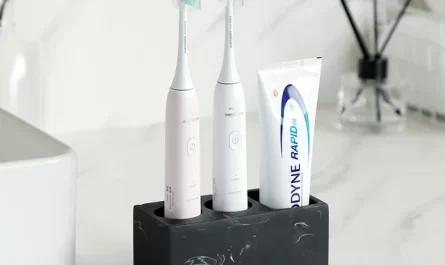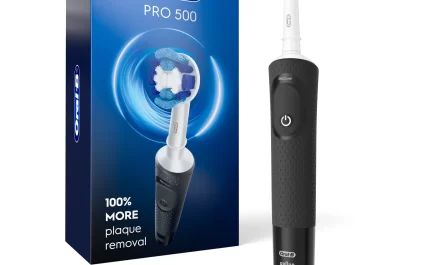The Importance of Oral Health and Self-Care
Good oral health is a key part of overall wellness. Daily habits, like brushing teeth, prevent problems such as tooth decay and gum disease. These issues can lead to more serious health concerns if ignored. Self-care practices cut the need for costly dental work later.
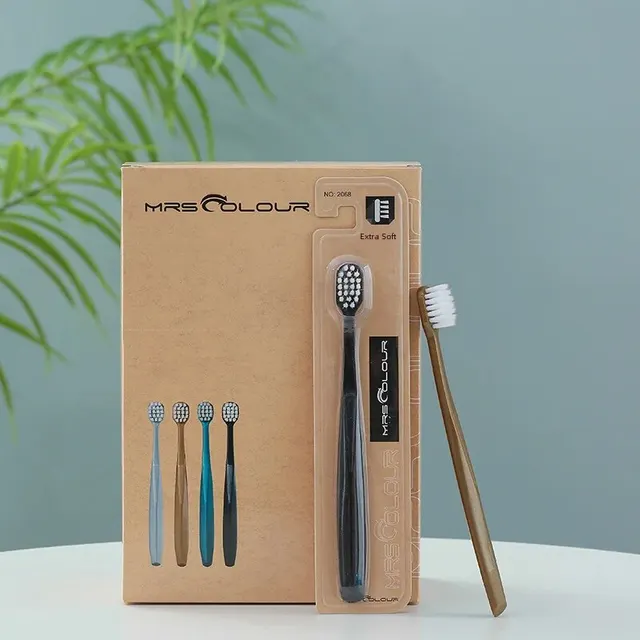
Brushing and cleaning between teeth help avoid oral diseases. These diseases link to other conditions, including diabetes and heart problems. Self-care is not just about health. It impacts confidence and quality of life. Smiling without worry affects how we interact with others.
Kids who learn good oral habits early can avoid many problems as adults. Adults who maintain these habits can prevent the loss of teeth. This is vital for avoiding costly treatments.
Toothbrushes play a big part in oral health routines. But, current rules don’t see them as necessary for tax savings. Making toothbrushes HSA eligible could change this. It would make it easier for Americans to get and use them. This change can lead to better oral health and trim down overall healthcare costs.
In short, good oral health is essential. It affects our physical health, emotions, and wallets. Improved access to tools like toothbrushes supports better self-care. It’s a smart move for personal and public health.
Current HSA and FSA Regulations for Oral Care
Health Savings Accounts (HSAs) and Flexible Spending Accounts (FSAs) are designed to help Americans with healthcare costs. They allow people to save money tax-free for medical expenses. However, the list of qualified medical expenses is stringent.
Currently, many oral care products, like toothbrushes, are not part of this list. Despite their crucial role in maintaining oral health, these items are seen as non-essential. This means that funds from HSAs and FSAs cannot be used for their purchase.
Manual and electric toothbrushes, water flossers, and mouthwashes are some products not covered. Although essential for everyday oral care, they are exempt from pre-tax savings benefits. This limits people’s ability to use these savings tools effectively for oral health.
Under the existing rules, items that are considered eligible are largely those related to treatment. This includes products that address specific medical issues or prescribed medications. OTC medications recently became eligible again. But the list does not extend to all products that promote preventive health.
Expanding this list to include oral health items, like toothbrushes, could greatly affect public health. With better access to these tools, we can encourage preventive healthcare. This move will not only improve individual health but potentially decrease the need for more expensive treatments in the future.
While legislative changes have been made to include OTC drugs and feminine hygiene products, oral care has yet to be addressed. This highlights an area of opportunity for lawmakers to improve the wellbeing of Americans by revising these regulations. It’s time for a change that reflects the importance of everyday preventive tools in maintaining overall health.
Economic and Health Disparities in Dental Care Access
Access to dental care in America is unequal and this impacts health and finances. Low-income Americans often report worse oral health than higher income groups. This leads to more health issues and disruptions in daily life like eating and speaking.
Children and rural populations face big hurdles in dental care access. Preschoolers have high rates of cavities, especially in low-income families. Rural residents struggle to get regular dental services, leading to greater tooth loss.
These disparities in dental care access have economic effects as well. Bad oral health hurts school attendance for kids and work productivity for adults. This results in significant economic loss each year.
Health conditions like diabetes and heart disease link to oral health. Basic oral care like brushing can save money on related health costs. But not everyone can afford the right tools for preventive care.
Toothbrushes and flossers are small expenses that can prevent big health care bills. Making these tools HSA-eligible can help bridge the gap in dental care access. This would allow people to use pre-tax dollars for vital oral care products.
By making toothbrush hsa eligible, it supports healthier lives. It can also help lower healthcare costs across America. It’s a step toward reducing the divide in health and wealth due to oral care access.
The Societal Costs of Neglected Oral Health
Neglecting oral health affects society greatly. It causes health issues and raises healthcare costs. People with poor oral health can face pain, infections, and tooth loss. These problems can lead to chronic diseases like diabetes and heart conditions.
Tooth decay is the most common chronic childhood disease. It hurts kids’ ability to learn and grow. Adults with bad oral health face work problems. They may miss work, resulting in lost income and reduced productivity. This adds up to a huge economic hit each year.
Worse, oral health problems hit low-income and rural communities hardest. They often lack access to care. This imbalance means these groups suffer more from oral diseases. As a result, they end up with higher medical bills and life struggles.
Basic oral care, like using a toothbrush, can stop many oral issues. Yet not everyone can afford these simple tools. Making toothbrushes HSA-eligible could help lower these societal costs. Giving access to oral care tools to more people would mean better overall health. This could reduce the toll on health services and society in general.
Good oral health is a public good. It saves money on healthcare and supports a healthier, happier society. Making toothbrushes HSA-eligible is one step towards achieving this.
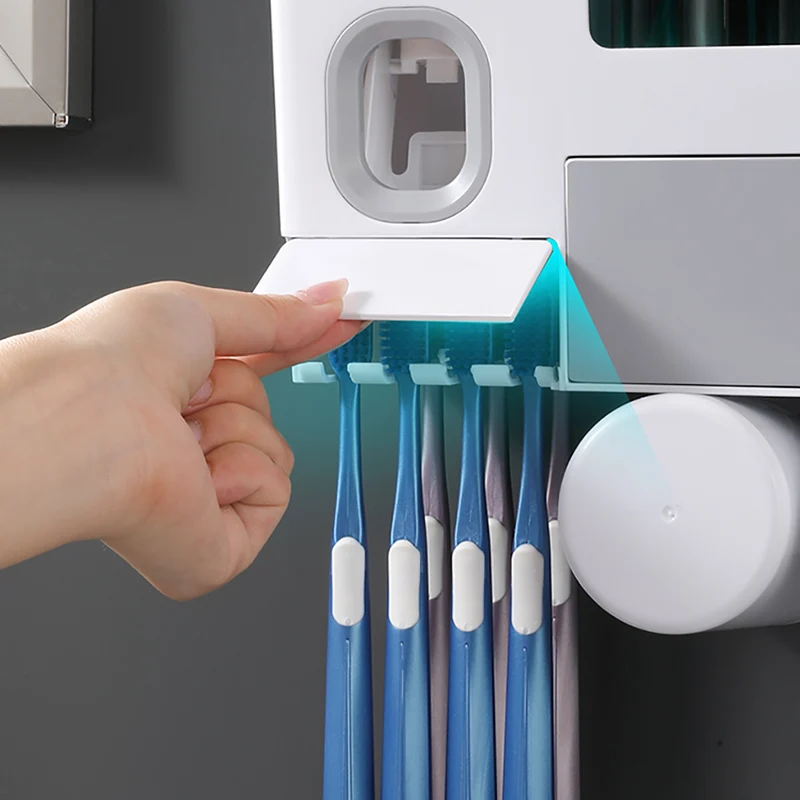 Proposed Legislation for HSA/FSA Expansion
Proposed Legislation for HSA/FSA Expansion
Expanding HSA/FSA to include toothbrushes is underway. Lawmakers understand that oral care is essential. They are crafting legislation to make toothbrushes, among other products, eligible for tax savings.
This is crucial. It will enable people to use pre-tax dollars for such products. Today, many must choose between oral care and other expenses. This change can improve health habits.
People of all incomes use HSAs and FSAs. This is not just for the wealthy. By including more products, we can help more Americans. For low-income families, this change could be a big deal. It can make preventive care more accessible.
Health experts also support this expansion. They know that good oral health can prevent other diseases. Diseases like diabetes and heart problems are linked to poor oral care.
If this legislation passes, it will be a step toward better health for all. It would recognize the value of oral care. And, it would broad the range of products covered under HSA/FSA.
This is not about extra spending. It’s about smart, preventive healthcare. By investing a little in oral care now, we can save more on health costs later.
Americans deserve to get the most from their FSAs and HSAs. They should not worry about affording a toothbrush. With this legislation, they won’t have to.
The Potential Impact of Making Toothbrushes HSA-Eligible
Making toothbrushes HSA-eligible could transform oral health care. This shift would have several positive effects on individuals and society. Here are some potential impacts:
- Improved Oral Health: If toothbrushes are HSA-eligible, more people might buy quality brushes. Using them correctly could reduce cavities and gum disease.
- Expanded Access: Tax savings on toothbrushes can make them more affordable. This is especially true for low-income families. All groups would benefit from better oral care access.
- Lower Healthcare Costs: Preventive oral care can cut future dental expenses. Making toothbrushes HSA-eligible places focus on prevention. This can lower overall health care spending.
- Better Overall Health: Oral health links to general health. With HSA-eligible toothbrushes, more people could keep their mouths healthy. This could help prevent other diseases and improve wellbeing.
- Greater Equity: Having HSAs cover toothbrushes would address some disparities in oral health. It would help ensure that income does not decide who gets to take care of their teeth.
The keyword ‘toothbrush hsa eligible’ has been incorporated into the text. By considering this eligibility, there can be a significant shift in how we approach oral health. It not only benefits the individual users but also points to a more health-conscious and proactive society.
Consumer Spending and Savings with FSA/HSA
Consumers value the savings they get from FSAs and HSAs. With these accounts, they can pay less tax and save money for health needs. Sadly, the rules on what they can buy are quite strict. Right now, things like toothbrushes aren’t covered. They are important for keeping teeth clean, but not seen as a must-have for these savings accounts.
However, change could make a big difference. If toothbrushes become HSA-eligible, people could use pre-tax money to buy them. What’s more, more folks could afford good toothbrushes. Better brushes could lead to fewer teeth problems. And this could mean less money spent on fixing those teeth later.
The benefits are clear. If people can spend FSA/HSA money on toothbrushes, it’s good for everyone. They save money, take care of their teeth, and avoid bigger health issues. It also helps everyone by cutting healthcare costs down the road.
Making toothbrush hsa eligible could play a major role. It gives people more choice in managing their health spending. This is especially true for families with tight budgets. It lets them buy things that stop bigger problems. And in the end, that’s a win not just for them, but for the whole healthcare system.
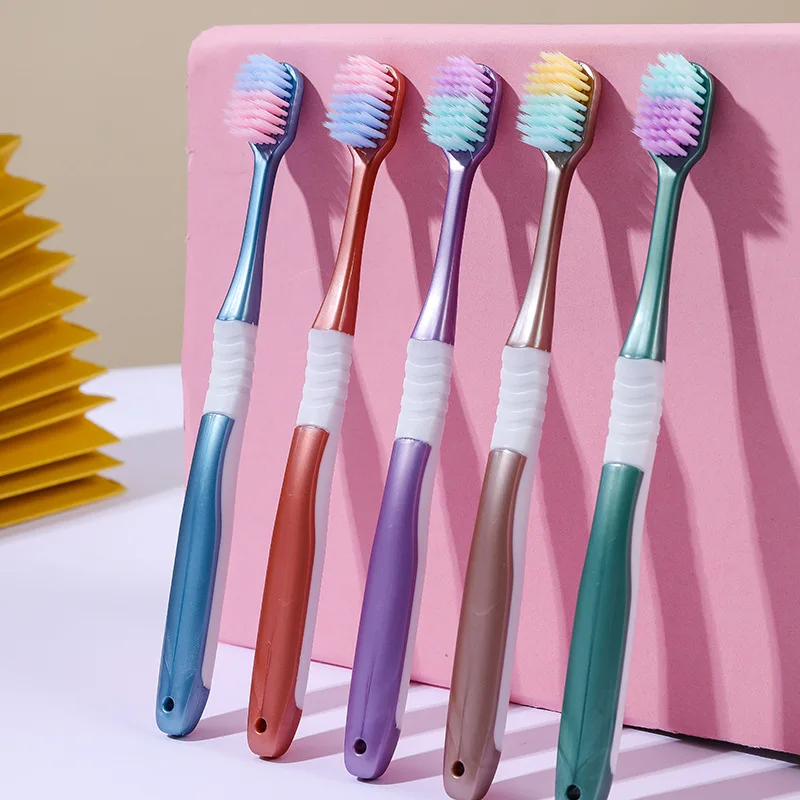 The Future of Oral Healthcare Accessibility
The Future of Oral Healthcare Accessibility
The road ahead in oral healthcare is promising, with the potential to reshape access and affordability for everyone. Changes to HSA and FSA eligibility could play a pivotal role in this process. Making items like toothbrushes HSA-eligible is not just a small regulatory tweak. It’s a significant push towards equal health opportunities. Here’s how the future might unfold:
- Easier Access to Oral Care Products: If toothbrushes become HSA-eligible, it will be easier for all Americans to access the tools they need for daily oral care. This shift could lead to widespread improvements in oral health.
- Increased Preventive Measures: By allowing tax savings on oral care items, more people might put money into preventive care, understanding its importance for long-term health.
- Reduction in Oral Health Gap: Making toothbrushes and other dental care items eligible for purchase with pre-tax dollars could help close the oral health gap, especially among disadvantaged communities that struggle with access to care.
- Long-Term Cost Savings: Investing in preventive health contributes to reduced long-term healthcare costs. This includes less money spent on dental emergencies and restorative procedures.
- Enhanced Public Health Outcomes: With better oral care accessibility, we may see a decrease in dental-related illnesses, which in turn can contribute to better overall health outcomes for the population.
- Reinforced Importance of Oral Care: A move to include oral care products in HSA/FSA eligibility will underline their essential role in maintaining health, reinforcing the message that taking care of one’s mouth is just as important as other aspects of health.
Looking ahead, the move to make toothbrushes and other oral healthcare tools HSA-eligible stands as a beacon for broader, more inclusive health policies. As more people gain the means to maintain good oral hygiene, we build a stronger, healthier community. This goal of improved oral healthcare access, with the support of amended HSA/FSA rules, underlines the truth: good health starts with a healthy mouth.

